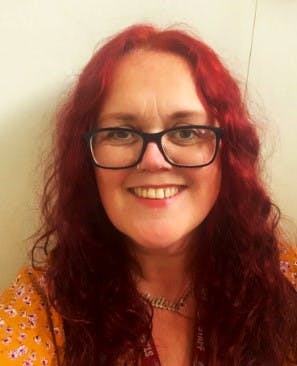What is a HDRC?
What is a HDRC (Health Determinants Research Collaboration)?
Health Determinants Research Collaborations (HDRCs) help to boost research capacity and capability within local government. They aim to embed a culture in Councils of always using evidence when making decisions.
HDRCs use research findings to understand how decisions impact on health and health inequalities. They also look to find funding to carry out research where evidence isn't already available. Factors that can impact somebody's health are called 'health determinants' and you can find out more information, or test your knowledge on health determinants here: What are health determinants
The NIHR Health Determinants Research Collaboration (HDRC) Rhondda Cynon Taf is part of the NIHR and hosted by Rhondda Cynon Taf County Borough Council. The NIHR (external link) funds, enables and delivers world-leading health and social care research that improves people's health and wellbeing and promotes economic growth.
This short video from our funder, the NIHR, is useful to understand what research is and why it matters.
You can find more information on HDRC's here: Health determinants research collaborations | NIHR (external link).
What is RCT HDRC?
£5 million has been awarded (external link) to Rhondda Cynon Taf County Borough Council (2023) by the National Institute for Health and Care Research (NIHR) to create Rhondda Cynon Taf Health Determinants Research Collaboration (RCT HDRC). The aim is to create a vibrant research culture within the Local Authority that drives evidence-based decision-making to break the cycle of poverty, improve the life chances of the most disadvantaged, and address the wider determinants of health. This is:
- A new way of working for the Council.
- A way of sharing what we do in RCT and learning from others.
- A once in a generation opportunity to make a real and sustainable change to the way in which public services are delivered.
RCT HDRC is a powerful partnership, responding to the needs of people and communities in RCT. Our partners include:
- Citizens that live, work, study or play in RCT.
- Rhondda Cynon Taf Council.
- Interlink RCT (County Voluntary Council).
- Cwm Taf Morgannwg University Health Board
- Public Health Wales.
- Our research community at Cardiff University
How long will the RCT HDRC project run?
The RCT HDRC is planned to run for five years, January 2024 - December 2028.
How can RCT CBC affect the impact of Health Determinants?
Things like money, housing, education, and access to services have a big impact on our health—not just physically, but also mentally and emotionally. A lot of health problems are linked to adverse situations, like living in poverty or poor housing. These social factors, like how much people earn or whether they can get medical help, affect how healthy people are and even how long they live. Because everyone has different life experiences, health determinants can vary a lot—even between places that are just a few streets apart. That’s why every part of the local council can help improve people’s health by tackling these deeper issues. This short video from our funder, the NIHR, explains why health determinants are the Council’s business.
How can RCT HDRC help 'make a change'?
Health Determinants Research Collaborations (HDRCs) enable local authorities to become more research-active, embedding a culture of evidence-based decision making. We aim to:
- Work with the public to better understand needs and priorities.
- Change culture of evidence use at all levels of RCT Council.
- Help people to access interpret and use the best available evidence.
- Help people to develop the skills, knowledge and confidence to collect, interpret and use evidence.
- Support people to develop new research ideas and apply for funding.
- Connect with other organisations to share learning, data and expertise.
Our delivery plan has 6 key aims, which are broken down into Work Packages (WPs). You can read about these in more detail on our Work Packages page. You can also read more about what we will do and how we will do it by downloading our Business Plan which is on the document section on this page.
The outcomes we expect to see are noted in Priority 2, page 17 of Rhondda Cynon Taf Council’s Corporate Plan 2024- 2030 (external link).
How will RCT HDRC decide on what to prioritise?
You can read all about this on our Governance and Management page. You can also find out how we prioritise our project enquiries here.
What are the roles and specialist skills within RCT HDRC?
You can read about our team and our specialist roles here.
How is progress monitored?
We keep track of how things are going using the Council’s Performance Management Framework — basically, a system that helps us regularly check our progress. We also stay in touch with elected councillors, take part in scrutiny meetings, and follow clear governance processes to make sure everything is running as it should.
Every three months, we send a progress report to our funder, the NIHR, to show what we’ve achieved and what we’re working on next.
How will the impact of the project be measured?
We’ll measure our impact by looking at key performance indicators (important signs of progress), doing regular check-ins and evaluations, and listening to feedback from the people and organisations involved.
How will you share your findings?
We’ll share what we learn in lots of different ways — through reports, published articles, events, and by posting on our internal and public websites. This helps us reach as many people as possible, both inside and outside the Council. Be sure to keep an eye on this website to keep up to date. You can also subscribe to our newsletter!
If you live, work, study or play in RCT you can get involved to help us make a change.


